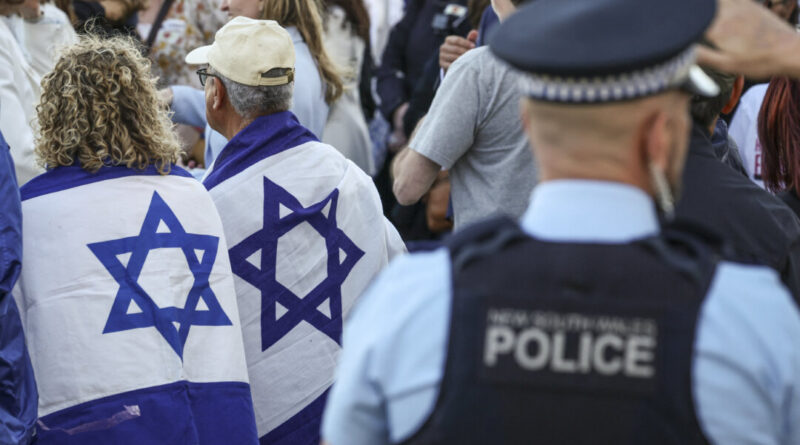New Legislation in NSW to Criminalise Incitement of Racial Hate
NSW’s firm stance against hate speech is sparking controversy, raising concerns about potential infringements on protest rights. The bill is scheduled to be presented in Parliament today.
The NSW government is gearing up to introduce legislation aimed at addressing hate speech and anti-Semitism in Parliament on Feb. 18.
The Crimes Amendment (Inciting Racial Hatred) Bill 2025 will make it a criminal offense to incite hatred based on race in public, introducing a new section, 93ZAA, to the Crimes Act 1900.
If the bill is approved, individuals could face penalties of up to two years in prison and fines of up to $11,000 (US$7,000), while corporations could be fined up to $55,000.
The legislation targets public acts that deliberately promote hatred on racial grounds, with an exemption for religious teachings directly referencing religious texts.
NSW Premier Chris Minns emphasized the government’s commitment to combating hate, stating, “Racial hatred and antisemitism have no place in our society, and we are making it clear with this law.”
This move follows a rise in hate crimes in NSW, including incidents like the defacement of synagogues with swastikas and violent altercations near places of worship.
The Jewish and Muslim communities have reported a surge in threats and harassment, prompting demands for stronger legal safeguards.
Further Steps for Religious Protection
In addition to the new law, the NSW government has implemented various measures to safeguard places of worship.
These measures include new offenses targeting the display of Nazi symbols near synagogues and Jewish schools, harsher penalties for vandalizing religious sites, and stricter laws against graffiti.
Moreover, funding for the NSW Engagement and Hate Crime Unit and the Safe Places for Faith Communities Grants has been increased to enhance security at religious sites.
Challenges Regarding Legal Scope and Human Rights Concerns
While the government is resolute in its stance on the proposed legislation, human rights organizations have raised alarms.
The Human Rights Law Centre (HRLC) has cautioned that the bill’s ambiguous language, particularly terms like “impede,” “hinder,” and “harass,” could inadvertently criminalize peaceful protests and demonstrations.
HRLC has urged the government to ensure that the law specifically targets actions that directly impede religious practices or are motivated by racial or religious animosity.
The center also recommends refining the language of the law to prevent overstepping, especially in relation to gatherings near places of worship.
Timothy Roberts, President of the NSW Council for Civil Liberties (NSWCCL), criticized the government for ignoring expert advice.
“You cannot solve social cohesion by making arrests. This reactive approach from the premier will not ensure people’s safety,” he stated.
He advocated for stronger legal protections against all forms of hate speech and increased investment in community initiatives addressing racism, online hate, and radicalization.
On the other hand, Equality Australia has called on Minns to broaden the scope of the bill to encompass all vulnerable groups.
While the existing Crimes Act already includes an offense for publicly threatening or inciting violence based on various attributes, the new law specifically focuses on racial hatred.
“There is no reason why this additional offense couldn’t apply to all attributes currently protected by the law,” asserted Equality Australia CEO Anna Brown. “Any community facing hate deserves legal protection.”
Federal vs. NSW: Comparing Approaches to Hate Crimes
In response to escalating incidents of anti-Semitism and Islamophobia, both the federal and NSW governments have introduced separate hate crime laws, which vary in scope, penalties, and implementation.
The Albanese government’s Criminal Code Amendment (Hate Crimes) Bill 2024, enacted on Feb. 6, covers the entire country and expands protections against hate crimes based on different factors.
It introduces new offenses for promoting violence and mandates minimum sentences, including penalties for displaying hate symbols publicly.
In contrast, the NSW legislation specifically targets incitement to racial hatred and the protection of places of worship.
Unlike the federal law, it does not require minimum sentences, but it imposes penalties of up to two years in prison and fines of up to $11,000.
Both laws have faced criticism. Opponents, including the Greens and Senator David Pocock, argue that mandatory sentencing under the federal law, introduced last minute at the Opposition’s insistence, could restrict judicial discretion.
As both governments work to address escalating hate crimes, debates continue over which approach will be more effective in ensuring safety and fostering social harmony across Australia.





